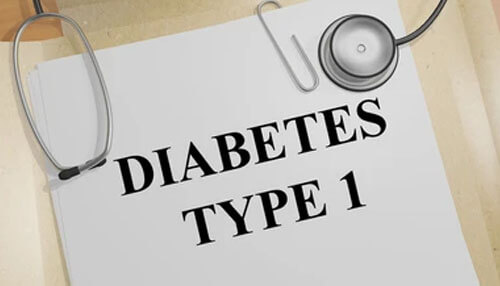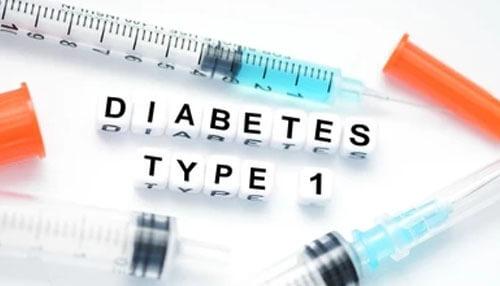Diabetes is caused by the body’s inability to create enough insulin due to damage to beta cells in the pancreas. Insulin is a hormone that helps the body regulate blood glucose, often known as blood sugar. Lack of immune system response is the most common cause of type 1 diabetes. The body attacks its own insulin-producing beta cells in the pancreas as a result of this response. It commonly manifests itself in children and young adults, although it can manifest itself at any age.
Insulin allows glucose from meals to enter the cells of the body and be converted into energy. If glucose is unable to enter these cells, too much sugar builds up in the blood, resulting in hyperglycemia. It will eventually cause harm to the body.
Many people think that it is Safer To Use Diabetes Curing Supplements, but without medical supervision, nothing should be used, which is why we are here to explore all about this disease.
What is Type 1 diabetes?
Type 1 diabetes is a disorder in which your immune system attacks the cells in your pancreas that produce insulin. These are referred to as beta cells. Because the disorder is most commonly diagnosed in adolescents and teenagers, it was previously known as juvenile diabetes.
Secondary diabetes is similar to type 1, but your beta cells are destroyed by something other than your immune system, such as a disease or an injury to your pancreas.
Both of these conditions are distinct from type 2 diabetes, which occurs when your body does not respond to insulin as it should.
Symptoms
- Frequent urination.
- Increased hunger.
- Upset stomach.
- Nausea and vomiting.
- Fatigue.
- Dry mouth.
- Blurry vision.
- Crankiness.
- Unexplained weight loss.
- Heavy, labored breathing.
- Frequent infections of your skin, urinary tract, or vagina.
Causes
1. When you pee, glucose leaves your body and takes calories with it. That’s why a lot of people with diabetes lose weight. It proves that dehydration is a major risk factor for this disease. You pee more when you have too much sugar in your blood. That is your body’s method of eliminating it. The urine excretes a considerable volume of water, leading your body to become dehydrated.
2. When your body runs out of glucose, it turns to fat cells for energy. Ketones are produced as a result of this process. To assist you, your liver releases the sugar it has stored. However, without insulin, your body can’t utilize it, so it builds up in your blood, along with the acidic ketones. Ketoacidosis is a life-threatening condition caused by a combination of excess glucose, dehydration, and acid accumulation.
3. High blood glucose levels can injure the neurons and tiny blood vessels in your eyes, kidneys, and heart over time. They can also increase your risk of atherosclerosis, or hardening of the arteries, which can lead to heart attacks and strokes.
Treatment Procedures
If there is a disease, there’s also its treatment. Diabetes treatment might not be as simple as some other chronic diseases, but there are some ways to cure this issue. Let’s find out.
Insulin
Anyone with type 1 diabetes needs insulin therapy for the rest of their lives.
Insulin comes in a variety of forms, including:
- Insulin with a short half-life.
- Insulin that works quickly.
- NPH insulin is a kind of intermediate-acting insulin.
- Insulin with a long half-life.
Humulin R and Novolin R are two examples of short-acting (regular) insulin. Insulin glulisine (Apidra), insulin lispro (Humalog), and insulin aspart are examples of rapid-acting insulin (Novolog).
Artificial Pancreas
The first artificial pancreas for persons with type 1 diabetes aged 14 and over was authorized by the Food and Drug Administration in September 2016. In December of this year, a second artificial pancreas was authorized.
Closed-loop insulin delivery is another name for it. The implanted gadget connects an insulin pump to a continuous glucose monitor that examines blood sugar levels every five minutes. When the monitor shows that insulin is required, the gadget automatically provides the necessary dose.
More artificial pancreas technologies are being tested in clinical studies right now.
Medications
To maintain your kidneys healthy, your doctor may give angiotensin-converting enzyme (ACE) inhibitors or angiotensin II receptor blockers (ARBs).
These drugs are advised for diabetics with blood pressures of more than 140/90 millimeters of mercury.
If your doctor believes you are at an elevated risk for a cardiovascular event and has discussed the possible risk of bleeding with you, he may prescribe that you take a baby or regular aspirin daily to protect your heart.
Because of the increased risk of heart disease, cholesterol recommendations for those with diabetes are often more stringent.
To Sum It Up
Type 1 diabetes is an autoimmune disease in which the immune system assaults and kills insulin-producing cells in the pancreas. This can result in elevated blood sugar levels, which can have serious repercussions.
Frequent urination, increased appetite and thirst, and eyesight changes are all early indicators, but diabetic ketoacidosis can also be the initial sign. Complications might arise over time.
Insulin therapy is required for the management of diabetes and the prevention of complications. A person with type 1 diabetes can live a full and active life with medication.
So, if you want more details, ask us in the comment section.



